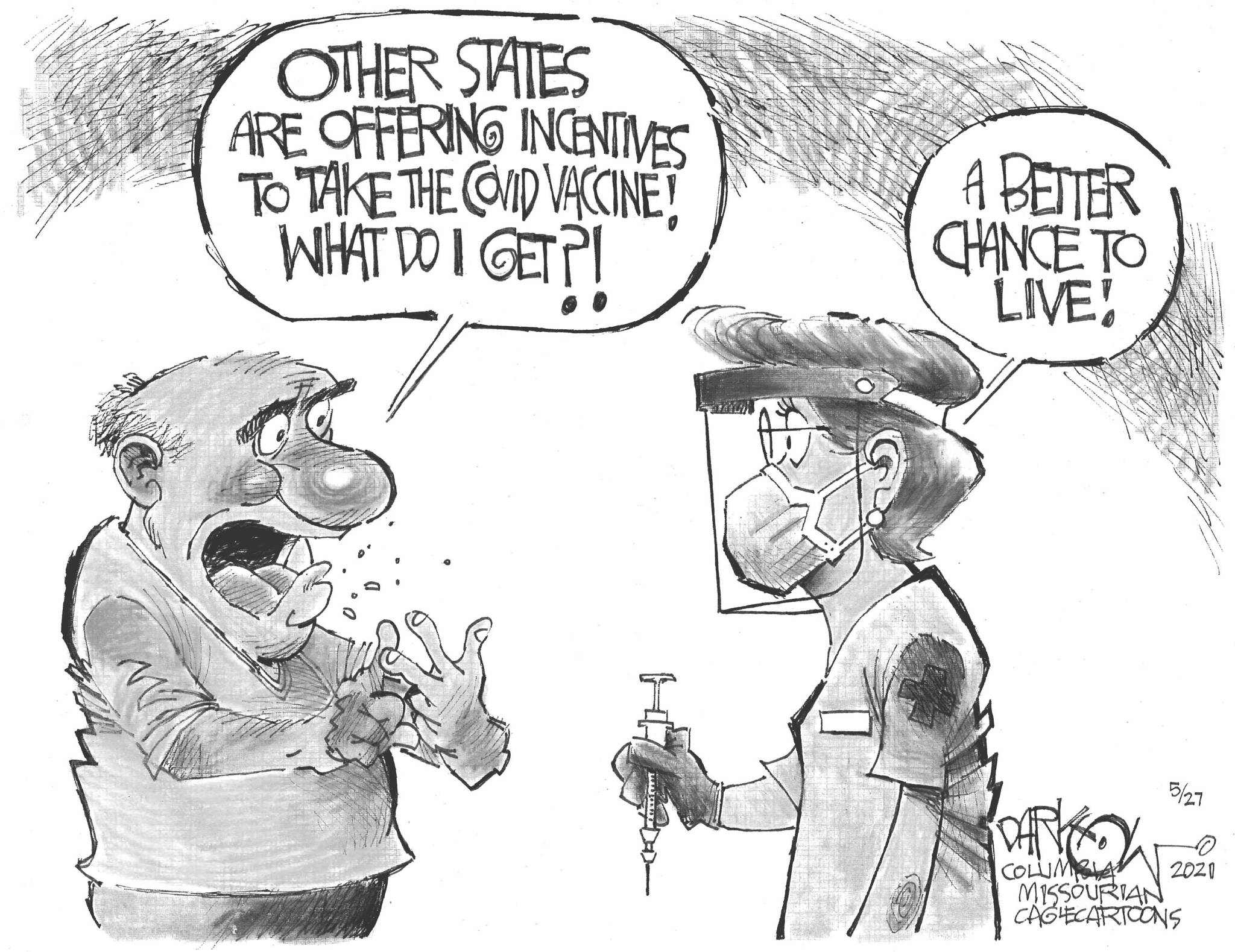The Columbian
Want to win $1 million? All you need to do is be vaccinated against COVID-19. Well, and be very lucky — one-in-several-million lucky.
Washington has announced a lottery for people who have been fully vaccinated against coronavirus. The top prize is $1 million, and other cash awards will be handed out; so will gaming systems, sports tickets, tuition credits and airline tickets.
“These generous programs will encourage more Washingtonians to take this lifesaving vaccine,” Gov. Jay Inslee said in announcing the “Shot of a Lifetime” program.
That, of course, is the point — to get more Washingtonians vaccinated against a disease that has seen more than 440,000 cases in the state and has contributed to nearly 6,000 deaths. The contest runs through June 30, and people already vaccinated also are eligible for prizes.
Several other states — including Oregon — already have announced lotteries in a push to increase vaccinations. Companies, such as Krispy Kreme and United Airlines, have offered incentives, and Anheuser-Busch announced a free beer for everybody over 21 on July 4 if the nation reaches President Joe Biden’s target for vaccine numbers.
“That’s right, get a shot and have a beer,” Biden said.
All of which raises some interesting philosophical and ethical questions. We believe that everybody who is medically able to receive a vaccination should do so. It is a matter of public good, of protecting our families and our neighbors and even strangers we come into contact with. A full reopening of society is dependent on reducing infection rates.
Vaccines and advancements in public health policy have transformed the world. Prior to the mid-1900s, pandemics were relatively common; as populations increasingly congregated in cities, the spread of disease was an inescapable threat. From 1846 to 1969, seven pandemics are believed to each have killed at least 1 million people worldwide.
While people should be vaccinated, many are resisting that social duty; public opinion polls typically show that about 13 percent of American adults say they will refuse to be vaccinated. That leads to questions about the role of governments in inducing inoculations — providing a carrot rather than a stick.
“Anti-vaxxers may never be convinced to change their stance, but incentivizing vaccination may persuade others who might not have done so to get the jab,” an ethics professor at Oxford University wrote in an article for the British Medical Journal last fall.
“The advantage of payment for risk is that people are choosing voluntarily to take it on. As long as we are accurate in conveying … the risks and benefits of a vaccine, then it is up to individuals to judge whether they are worth payment.”
Whether to receive a vaccine is a personal decision, but it is one that has ramifications for others. COVID vaccines have been released for emergency use and now are available for people as young as 12.
And the Centers for Disease Control and Prevention reports: “COVID-19 vaccines are safe and effective. COVID-19 vaccines were evaluated in tens of thousands of participants in clinical trials. The vaccines met the Food and Drug Administration’s rigorous scientific standards for safety, effectiveness, and manufacturing quality.”
Ideally, everybody would embrace the opportunity to help tamp down the COVID-19 pandemic. In Washington, more than 3.5 million people are fully vaccinated. But for the rest of them, a little bit of incentive and the chance to win something in exchange for being inoculated probably can’t hurt.
The Columbian is a family-owned newspaper based in Vancouver, Washington.



